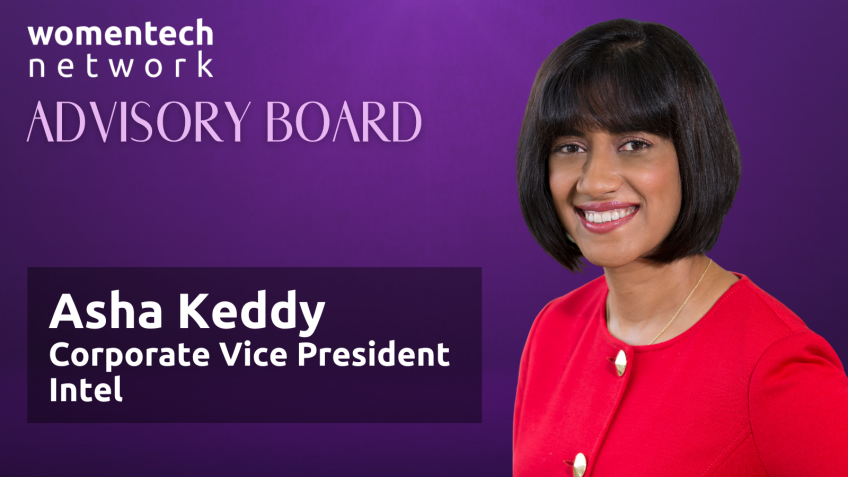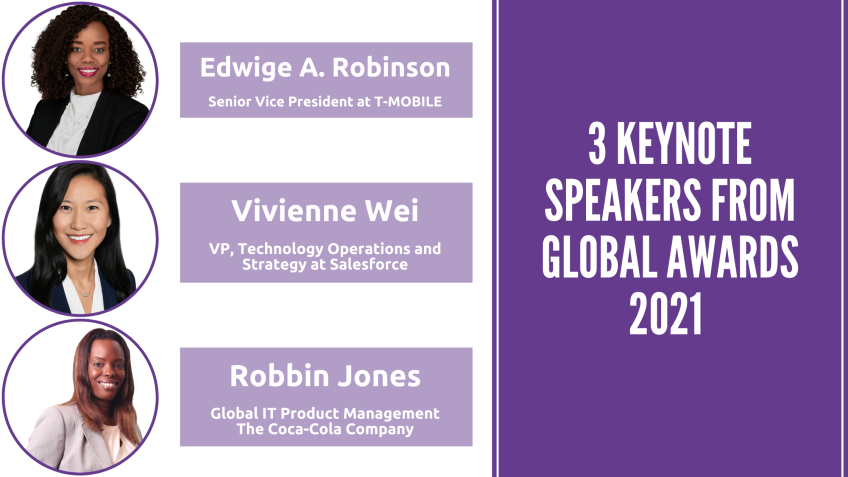
With the WomenTech Global Conference just around the corner, we wanted to support you, our 600+ speakers, in the preparation of your presentation or workshop. We created a three-part series and in this guide, you can find tips on how to:
-
Write a Memorable Speech - because you can't have a good presentation or workshop without a clear, focused message.
10 Strategies for Writing A Memorable Speech
A lot of speakers can get tempted into thinking that their speech is about them. In reality, what you as a speaker need to remember is that your speech is about the attendees and you're a guest in their life; they've given valuable time to you, your thoughts, and experiences. Therefore, when writing a speech, you have two objectives: making a good impression and leaving your audience with two or three takeaways in the end.
To achieve those, follow these strategies:
1. Be Memorable
There are rhetorical devices you can use to be remembered. However, no matter the device used, it's also important what you use it for. One of the best things you can do is to use it to emphasize the main idea of your speech in a 15-20 word epigram. A good example is J.F.K.'s famous line from his 1961 inaugural address: "Ask not what your country can do for you; ask what you can do for your country". Here, we have the main idea of serving to achieve a greater good, dressed in the rhetorical device of contrast.
You can also use metaphors, analogies, pure surprise, and more. Build up to them and introduce them at the right time. Often, that will be toward the end of your speech.
2. Have a Structure:
The audience expects two things from your speech: a path and a destination. Outline the path at the beginning of your speech, letting them know what you'll cover and defend, and then don't diverge from that path. Remove anything confusing or extraneous. If it doesn't help your main message, then it shouldn't be in your speech.
When you start writing, create an outline first. A universal structure that you can use is the following:
Introduction: Who are you, why are you giving the speech, what is your main thesis?
Main Message: Here you delve into ideas 1, 2 & 3 that support your main thesis. Include transitions, evidence, repetition, personal stories.
Takeaway: What do you want your audience to walk out of the room remembering?
When you present, have some notes so that you don't drift away yourself.
3. Don't Waste Your Opening:
The opening is the time your audience is the most receptive. Come out swinging. Share a shocking fact or statistic; tell a humorous anecdote; open with a question; tie whatever it is to your BIG IDEA. Keep the introduction short and engaging, as every moment you're speaking you lose audience members.
4. Remember Who Your Audience Is:
When writing your speech, ask these questions: Who is my audience? Why are they here? What do they want? Your speech is supposed to meet the expectations of others to be engaging. Whether it is to inform, motivate, entertain, or challenge, the speech must have the right tone to achieve those goals.
For speeches in a professional setting, it's always a good idea to be upbeat and uplifting. Even if people don't remember most of your talk, they will remember how you made them feel. Show enthusiasm about your chosen topic. If you're not enthusiastic, why should the audience be?
Tailor the content to your audience's level of knowledge and expertise too. You don't want to make them feel like they're in the wrong place or unintelligent because the language is too complicated for their level. If there's terminology, make sure to define it if it's not expected of everyone to know it.
5. Be Human:
You and your message are the same entity when you speak. So, if the audience doesn't trust you, they'll resist your message too. Your body language and delivery are very important to that end, but words play no little role in it either. You can be honest that you're nervous if you are. You can share a personal story if it relates to your BIG IDEA. Remember, don't preach or sell; it's the time to be yourself. Use a conversational tone, so that you can shorten the distance between yourself and the audience.
6. Repeat Yourself:
The mind is easy to distract and drift off. Therefore, repetition in a speech is key to leaving an impression. Pepper the speech generously with keywords, phrases, and themes, so that your audience and can go back on your selected path, should they drift away for a bit. Always look for places in your speech to tie what you're saying to earlier points.
7. Use Transitions and Evidence:
Transitional sentences are great to focus the audience on what's important and show intent. Saying something like "What does this mean?" and giving a pause, another good tactic, will alert people to pay attention to the next sentence.
Evidence in the form of examples, statistics, and quotations will give your speech authority, so don't miss on those. However, if you use quotations, don't overdo it because your speech is supposed to be mostly your words. Much like with the transitions, use quotations as a guiding light for your audience to help them remember a takeaway better or to support a point you made.
8. Use Visuals:
You can always illustrate a point just with words, but if you incorporate visuals you involve more senses and make your points more memorable. Still, keep whatever props you add, as well as your storyline and BIG IDEA, simple. It can be complex, but not complicated, as in, having more than 2-3 key takeaways for your audience. Remember, you're going for being memorable, not for presenting everything you know on a subject.
Even if you use visuals though, remember that people will be listening to you, so write for the ear, not for the eyes. Revise your speech, read it out loud, and make sure it doesn't sound awkward or confusing.
9. End Strong:
The ending is what the audience will remember, so recap your biggest takeaways, tie everything together, share a success story maybe, make a call to action, don't be timid here. The end is what they'll remember.
10. Keep It Short:
The worst sin of public speaking is trying to do too much. The longer you talk, the higher the chance is you'll stray or make mistakes, so include only what helps your BIG IDEA and don't go overboard. Rehearse and time yourself. Remember, this is their time, not yours.
There you have it, your short guide to engaging speeches, which you can use for the upcoming WomenTech Global Conference or for future talks and workshops.
If you're looking for some extra inspiration, you can check out some of the best speeches ever given .







